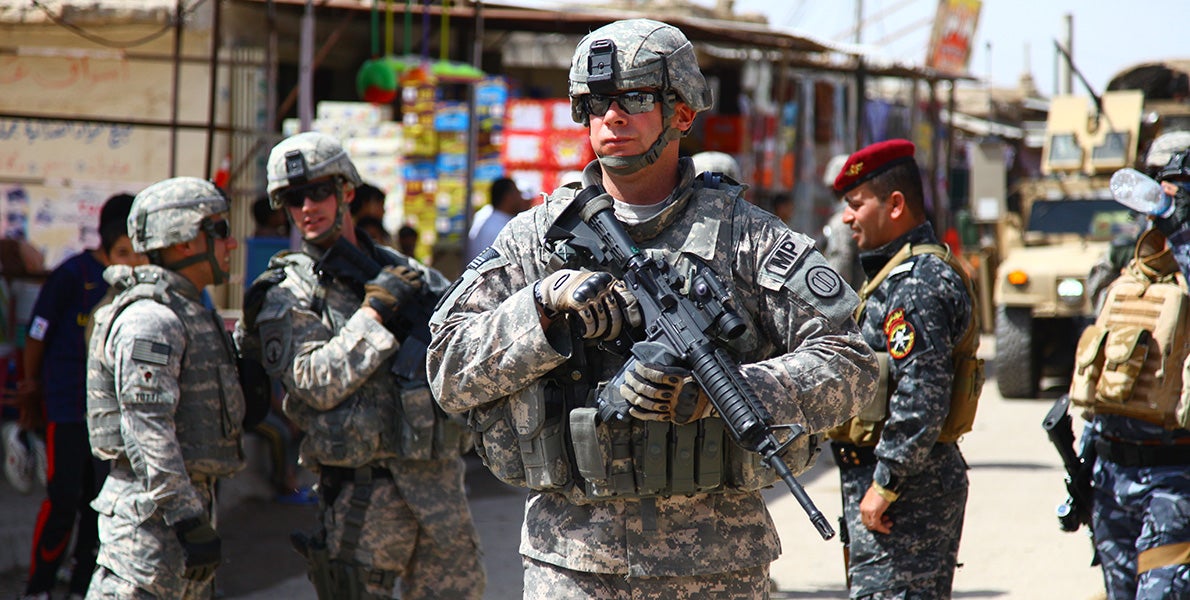Exploring Army Post-WWII Diplomacy
Exploring Army Post-WWII Diplomacy

Feb. 24, 2017
Too many cooks in the kitchen may have hampered efforts to rebuild Iraq in the wake of the war, according to a U.S. Army legal expert who has studied and written about postwar military governance.
Col. Walter M. Hudson, chief of the criminal law division in the Office of the Army Judge Advocate General, spoke during a recent Lemnitzer Lecture hosted by the Association of the U.S. Army’s Institute of Land Warfare. Hudson noted that in Iraq in 2003, multiple agencies had a role in governing the fractured nation, including the Office of Reconstruction and Humanitarian Assistance, the Coalition Provisional Authority, Combined Joint Task Force-7 and eventually, the United Nations.
“You had military and civilian authorities at the same time, all sort of in charge,” Hudson said, noting there was “a lack of clarity at the outset.”
In contrast, the U.S. Army was the only governing body involved in the occupation of post-World War II Germany, said Hudson, author of Army Diplomacy: American Military Occupation and Foreign Policy after World War II.
Hudson said one theme that emerged from his research is that unity of command is “highly important” in successful occupations. In post-World War II Germany, “you didn’t have division of labor,” Hudson said. “There was one agency in charge. I think there’s sometimes the mistake of, ‘The more government, the better the solution.’ Not necessarily.”
In the decades since World War II, the U.S. Army’s military occupation of Germany often has been hailed as a great success, but Hudson cautioned that all such missions must be considered in their own unique contexts.
“They provide us perspective and insight for future endeavors,” Hudson said. “But we should not necessarily say, this is the key to success.”

